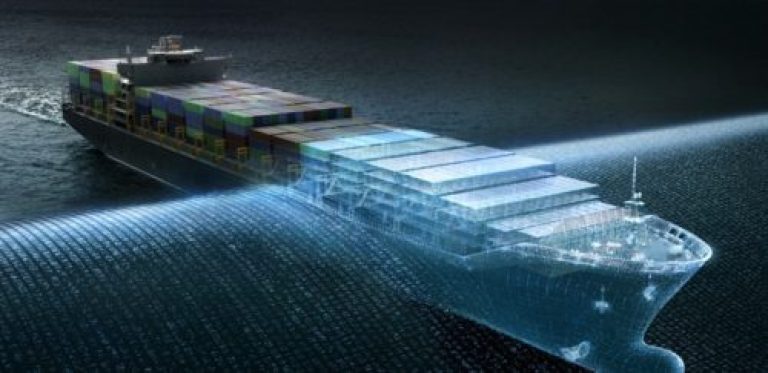AI is the new buzzword in the maritime sector. As the shipping industry is under a big transformation at a global level, Artificial Intelligence is already making things easier by seamlessly integrating new shipping logistics and communication technology
copyright by seanews.co.uk
 AI is the new buzzword in the maritime sector. As the shipping industry is under a big transformation at a global level, Artificial Intelligence is already making things easier by seamlessly integrating new shipping logistics and communication technology to evolve the business model within the shipping industry. Further, with the help of new algorithms, the shipping industry can fully rely on AI for mitigating security risks and reduce the cost of operations to a great extent. Along with that, AI can help the maritime sector to respond to and work in accordance with the new environmental regulations and policies in a better way.
AI is the new buzzword in the maritime sector. As the shipping industry is under a big transformation at a global level, Artificial Intelligence is already making things easier by seamlessly integrating new shipping logistics and communication technology to evolve the business model within the shipping industry. Further, with the help of new algorithms, the shipping industry can fully rely on AI for mitigating security risks and reduce the cost of operations to a great extent. Along with that, AI can help the maritime sector to respond to and work in accordance with the new environmental regulations and policies in a better way.
This shipping industry has rapidly sustained pressures over environmental regulations which posed a challenge to fuel on which vessels run. This combined with global cyber threats, have made digitalisation an indispensable alternative for the maritime industry. Shippers are now keen on improvising systems to nurture innovation and find solutions to these concerns.
Amidst changing scenarios in global shipping, Artificial intelligence (AI) has emerged as one of the hot topics. Inspiring and practical use cases are emerging on a daily basis, with organisations planning to adopt AI. However, while most of these technology implementations are in the conceptual stage, what and how much it takes to achieve business value and traction out of AI, depends on the reliance and robustness of products.
Artificial intelligence (AI) can collect and analyse data for the container shipping industry to chalk out plans more accurately. AI is pursued as the digital game changer in a variety of industries, which can render effective support to containerised supply chains with in-time transits and equipment availability.
Mitsui O.S.K. Lines, Ltd. (MOL) announced that the company and its subsidiary MOL Information Systems, have signed a contract with Yokohama National University to conduct a joint study on the analysis and use of Big Data related to ocean shipping. The study aims at developing the capability of data analysis of economics and maritime affairs and forecast the ocean shipping market and bunker prices with greater accuracy.
Besides, ports and terminals are recognising the trend for using Big Data to collaborate with shipping lines, except, little is known on how to do this effectively. Kalmar also released its ‘Kalmar Insight’ tool, which has been designed to help terminals turn Big Data into actionable insight.
The logistics and shipping sector can reap major benefits from AI, as artificial intelligence is most focused on large-scale numbers. These figures are analysed and organised from different sources, shaped and then used as the basis for decision-making, at times with minimum or no human input.[…]
Thank you for reading this post, don't forget to subscribe to our AI NAVIGATOR!
read more – copyright by seanews.co.uk


AI is the new buzzword in the maritime sector. As the shipping industry is under a big transformation at a global level, Artificial Intelligence is already making things easier by seamlessly integrating new shipping logistics and communication technology
copyright by seanews.co.uk
This shipping industry has rapidly sustained pressures over environmental regulations which posed a challenge to fuel on which vessels run. This combined with global cyber threats, have made digitalisation an indispensable alternative for the maritime industry. Shippers are now keen on improvising systems to nurture innovation and find solutions to these concerns.
Amidst changing scenarios in global shipping, Artificial intelligence (AI) has emerged as one of the hot topics. Inspiring and practical use cases are emerging on a daily basis, with organisations planning to adopt AI. However, while most of these technology implementations are in the conceptual stage, what and how much it takes to achieve business value and traction out of AI, depends on the reliance and robustness of products.
Artificial intelligence (AI) can collect and analyse data for the container shipping industry to chalk out plans more accurately. AI is pursued as the digital game changer in a variety of industries, which can render effective support to containerised supply chains with in-time transits and equipment availability.
Mitsui O.S.K. Lines, Ltd. (MOL) announced that the company and its subsidiary MOL Information Systems, have signed a contract with Yokohama National University to conduct a joint study on the analysis and use of Big Data related to ocean shipping. The study aims at developing the capability of data analysis of economics and maritime affairs and forecast the ocean shipping market and bunker prices with greater accuracy.
Besides, ports and terminals are recognising the trend for using Big Data to collaborate with shipping lines, except, little is known on how to do this effectively. Kalmar also released its ‘Kalmar Insight’ tool, which has been designed to help terminals turn Big Data into actionable insight.
The logistics and shipping sector can reap major benefits from AI, as artificial intelligence is most focused on large-scale numbers. These figures are analysed and organised from different sources, shaped and then used as the basis for decision-making, at times with minimum or no human input.[…]
Thank you for reading this post, don't forget to subscribe to our AI NAVIGATOR!
read more – copyright by seanews.co.uk
Share this: